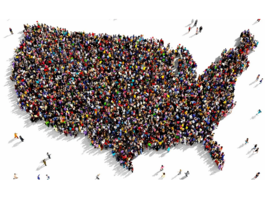Out of Formula By John Stossel
Parents still struggle to find baby formula.


The Rasmussen Reports Immigration Index for the week of May 22-26, 2022, decreased to 91.2, down more than a point from 92.5 two weeks earlier.

Mental health problems are seen as a leading factor in mass shootings by young men, and voters overwhelmingly support so-called “red flag laws” to help prevent such tragedies.

With President Joe Biden's Build Back Better agenda in ruins, Democrats want to blame Big Business for the mayhem of high inflation and a collapsing stock market.

Twenty-five percent (25%) of Likely U.S. Voters think the country is heading in the right direction, according to a new Rasmussen Reports national telephone and online survey for the week ending May 26, 2022.

Memorial Day marks the beginning of summer for most Americans, nearly half of whom expect to take a vacation this summer.

In surveys last week, this is what America told Rasmussen Reports...

As the nation prepares to celebrate Memorial Day, more than a third of Americans will remember someone close to them who made the ultimate sacrifice in the line of duty.

Complete and utter repudiation. That's what a record number of Republican primary voters in Georgia administered to former President Donald Trump this Tuesday. The man he blamed for not contesting his narrow 2020 loss in the state, Gov. Brian Kemp, won renomination with 74% of the vote.

The 2022 midterm elections are now 165 days away, and Republicans have a six-point lead in their bid to recapture control of Congress.

Ideology is political religion, said the conservative sage Russell Kirk.

Less than six months away from the congressional midterms, Republicans are more fired up than Democrats about voting this November.

— With the national House map nearly complete, it appears that the overall map still leans toward Republicans.
— However, this GOP bias is not nearly as strong as it was a decade ago.
— We rate and analyze the new Missouri and New York congressional maps.

Americans love their coffee, and most coffee drinkers consume at least two cups a day.

Protecting the integrity of elections remains a high priority for American voters, most of whom still suspect there was cheating in the 2020 presidential election.


In the aftermath of a teenage gunman’s deadly spree in Buffalo, most voters remain unconvinced that more gun control laws can prevent such mass shootings.

President Joe Biden, now in the second year of his presidency, is becoming increasing unpopular in the country that supposedly elected him with a record-setting 81 million votes.

In this administration, it's always someone else's fault. Inflation is now the No. 1 concern of voters, so the White House first blamed COVID. Then Donald Trump's tax cuts. Then Vladimir Putin. Then meatpackers and the poultry industry, Big Oil and pharmaceutical companies.

For half a decade now, America's media elite have been obsessed with former President Donald Trump and the Republican Party's conversion to Trumpism.